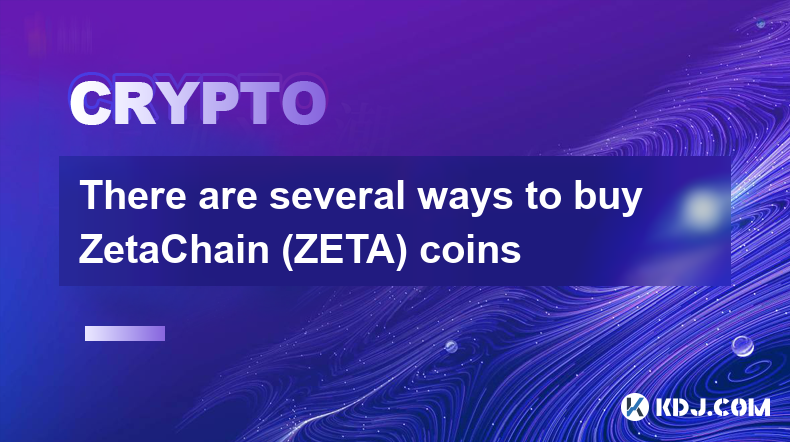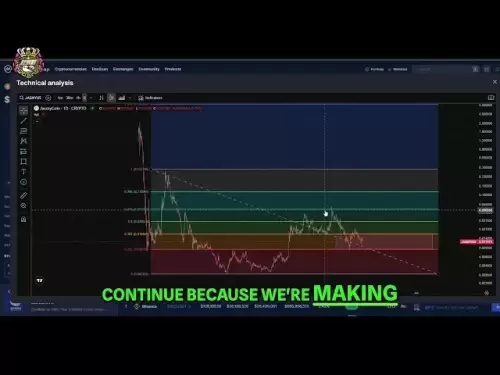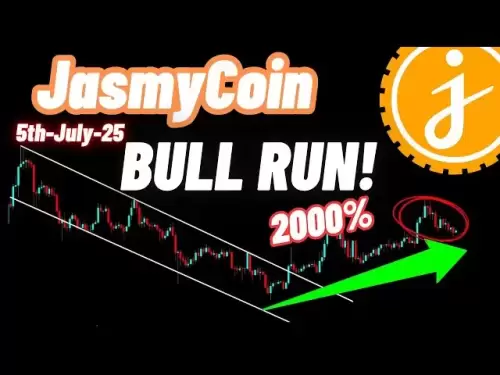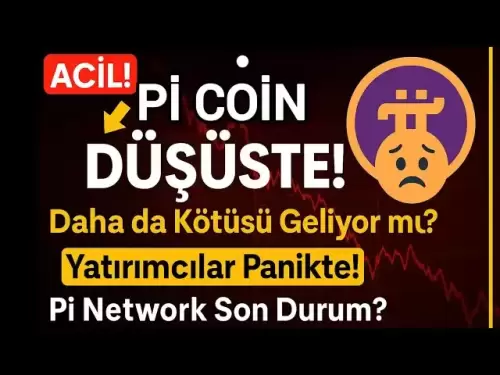-
 Bitcoin
Bitcoin $108,250.0992
0.11% -
 Ethereum
Ethereum $2,515.9404
0.03% -
 Tether USDt
Tether USDt $1.0003
0.00% -
 XRP
XRP $2.2166
-0.19% -
 BNB
BNB $656.5904
0.29% -
 Solana
Solana $147.4122
-0.58% -
 USDC
USDC $1.0000
-0.01% -
 TRON
TRON $0.2830
0.06% -
 Dogecoin
Dogecoin $0.1641
0.27% -
 Cardano
Cardano $0.5739
-0.19% -
 Hyperliquid
Hyperliquid $39.1463
-0.11% -
 Sui
Sui $2.8882
-0.02% -
 Bitcoin Cash
Bitcoin Cash $487.6428
0.31% -
 Chainlink
Chainlink $13.2097
0.07% -
 UNUS SED LEO
UNUS SED LEO $9.0308
0.10% -
 Avalanche
Avalanche $17.8608
0.13% -
 Stellar
Stellar $0.2379
-0.06% -
 Toncoin
Toncoin $2.7400
-0.39% -
 Shiba Inu
Shiba Inu $0.0...01144
-0.36% -
 Litecoin
Litecoin $87.5467
0.66% -
 Hedera
Hedera $0.1538
0.22% -
 Monero
Monero $315.5479
0.36% -
 Dai
Dai $1.0000
0.00% -
 Polkadot
Polkadot $3.3523
-0.71% -
 Ethena USDe
Ethena USDe $1.0003
0.01% -
 Bitget Token
Bitget Token $4.3960
-1.03% -
 Uniswap
Uniswap $7.2663
4.19% -
 Aave
Aave $272.8619
2.04% -
 Pepe
Pepe $0.0...09676
-0.18% -
 Pi
Pi $0.4586
-2.87%
There are several ways to buy ZetaChain (ZETA) coins
ZetaChain is a blockchain interoperability platform, allowing users to purchase ZETA tokens for platform access, governance, and staking rewards through centralized exchanges, decentralized exchanges, or peer-to-peer transactions.
Dec 22, 2024 at 11:02 am

Several Ways to Buy ZetaChain (ZETA) Coins: A Comprehensive Guide
Key Points:
- ZetaChain is a blockchain platform designed for interoperability among various blockchains.
- Purchasing ZETA tokens offers access to platform services, governance, and staking rewards.
- Multiple methods are available to acquire ZETA, including centralized exchanges, decentralized exchanges, and direct peer-to-peer transactions.
- Each method presents unique advantages and considerations, such as availability, fees, and security measures.
Step 1: Understand the Purpose and Use Cases of ZETA Tokens
Before investing in ZETA, it's crucial to comprehend their purpose and potential applications. ZETA tokens play a multi-faceted role within the ZetaChain ecosystem:
- Accessing Platform Services: ZETA serves as the native utility token, enabling access to premium services such as high-throughput transactions, data routing, and cross-chain communications.
- Participating in Governance: ZETA holders can participate in the platform's governance by voting on proposals and directing the development of the network.
- Generating Staking Rewards: ZETA tokens can be staked to support the network's security and earn passive income through staking rewards.
Step 2: Choose a Suitable Exchange or Platform
The first step towards acquiring ZETA tokens is selecting a reliable exchange or platform. Various options are available, each with its own characteristics:
- Centralized Exchanges (CEXs): CEXs offer a user-friendly interface and typically support a wide range of cryptocurrencies, including ZETA. However, they involve centralized custody of funds, which may raise security concerns.
- Decentralized Exchanges (DEXs): DEXs enable peer-to-peer trading without the need for an intermediary. They provide greater anonymity and control but can be more complex to use and may have limited liquidity for less popular tokens.
- Peer-to-Peer (P2P) Marketplaces: P2P marketplaces facilitate direct transactions between buyers and sellers. They offer flexibility and potential cost savings but require caution and verification to avoid fraudulent activities.
Step 3: Fund Your Account
Once you have selected your platform, you need to fund your account to facilitate the purchase of ZETA tokens. The funding methods and supported currencies vary depending on the chosen platform:
- CEXs: CEXs typically support a variety of fiat currencies and cryptocurrencies as funding options. They may require verification procedures to comply with anti-money laundering (AML) regulations.
- DEXs: DEXs often require funding with cryptocurrencies. They may offer decentralized payment gateways that support various cryptocurrencies and direct integration with digital wallets.
- P2P Marketplaces: P2P marketplaces typically provide flexible payment options, including direct bank transfers, mobile payments, and gift cards. The available payment methods may vary based on the region and vendor preferences.
Step 4: Place a Buy Order
With your account funded, you can proceed to place a buy order for ZETA tokens. The process of placing an order involves specifying the following parameters:
- Order Type: Select a market order for immediate execution at the current market price or a limit order to buy at a specific price or better.
- Order Amount: Specify the quantity of ZETA tokens you wish to purchase.
- Price: For limit orders, indicate the maximum price you are willing to pay.
- Review and Submit: Carefully review the order details before submitting it to the exchange or platform.
Step 5: Complete the Purchase and Store Your Tokens
Once your order is executed, the purchased ZETA tokens will be credited to your account. You should then transfer them to a secure wallet for long-term storage:
- Hardware Wallets: Hardware wallets offer the highest level of security by storing private keys offline. They are recommended for large holdings or long-term storage.
- Software Wallets: Software wallets are convenient and accessible on multiple devices. However, they may be less secure than hardware wallets.
- Exchange Wallets: Some exchanges allow you to store your ZETA tokens in their custodial wallets. While convenient, this option involves trusting the exchange with the security of your funds.
FAQs:
Q: Why should I buy ZETA tokens?
A: ZETA tokens offer access to the ZetaChain platform's services, participation in governance, and potential earning opportunities through staking.
Q: What is the best way to buy ZETA tokens?
A: The best method depends on your preferences and requirements. CEXs offer convenience and a wide range of options, while DEXs provide anonymity and decentralization. P2P marketplaces allow for flexibility and cost savings but require caution.
Q: How do I store ZETA tokens securely?
A: For long-term storage, hardware wallets provide the highest security. Software wallets offer convenience but may be less secure. Exchange wallets are convenient but involve trusting the exchange with the custody of your funds.
Disclaimer:info@kdj.com
The information provided is not trading advice. kdj.com does not assume any responsibility for any investments made based on the information provided in this article. Cryptocurrencies are highly volatile and it is highly recommended that you invest with caution after thorough research!
If you believe that the content used on this website infringes your copyright, please contact us immediately (info@kdj.com) and we will delete it promptly.
- XRP's Upside Potential: Analysts Bullish Despite Accessibility Concerns
- 2025-07-06 10:30:13
- Dubai Hotelier, Crypto Scam, and an Arrest in India: A Tangled Web
- 2025-07-06 10:30:13
- Bitcoin's Calm Before the Storm: ETF Inflows Surge Amidst Low Volatility
- 2025-07-06 10:50:13
- Crypto Capital Inflows: Why Qubetics, Ethereum, and SUI are Investment Coins to Watch
- 2025-07-06 10:50:13
- Bitcoin, Crypto, and Polymarket: Decoding the Crystal Ball
- 2025-07-06 11:15:22
- XRP Price Prediction: Can XRP Break the Weekly Downtrend?
- 2025-07-06 11:00:13
Related knowledge

How to customize USDT TRC20 mining fees? Flexible adjustment tutorial
Jun 13,2025 at 01:42am
Understanding USDT TRC20 Mining FeesMining fees on the TRON (TRC20) network are essential for processing transactions. Unlike Bitcoin or Ethereum, where miners directly validate transactions, TRON uses a delegated proof-of-stake (DPoS) mechanism. However, users still need to pay bandwidth and energy fees, which are collectively referred to as 'mining fe...

USDT TRC20 transaction is stuck? Solution summary
Jun 14,2025 at 11:15pm
Understanding USDT TRC20 TransactionsWhen users mention that a USDT TRC20 transaction is stuck, they typically refer to a situation where the transfer of Tether (USDT) on the TRON blockchain has not been confirmed for an extended period. This issue may arise due to various reasons such as network congestion, insufficient transaction fees, or wallet-rela...

How to cancel USDT TRC20 unconfirmed transactions? Operation guide
Jun 13,2025 at 11:01pm
Understanding USDT TRC20 Unconfirmed TransactionsWhen dealing with USDT TRC20 transactions, it’s crucial to understand what an unconfirmed transaction means. An unconfirmed transaction is one that has been broadcasted to the blockchain network but hasn’t yet been included in a block. This typically occurs due to low transaction fees or network congestio...

How to check USDT TRC20 balance? Introduction to multiple query methods
Jun 21,2025 at 02:42am
Understanding USDT TRC20 and Its ImportanceUSDT (Tether) is one of the most widely used stablecoins in the cryptocurrency market. It exists on multiple blockchain networks, including TRC20, which operates on the Tron (TRX) network. Checking your USDT TRC20 balance accurately is crucial for users who hold or transact with this asset. Whether you're sendi...

What to do if USDT TRC20 transfers are congested? Speed up trading skills
Jun 13,2025 at 09:56am
Understanding USDT TRC20 Transfer CongestionWhen transferring USDT TRC20, users may occasionally experience delays or congestion. This typically occurs due to network overload on the TRON blockchain, which hosts the TRC20 version of Tether. Unlike the ERC20 variant (which runs on Ethereum), TRC20 transactions are generally faster and cheaper, but during...

The relationship between USDT TRC20 and TRON chain: technical background analysis
Jun 12,2025 at 01:28pm
What is USDT TRC20?USDT TRC20 refers to the Tether (USDT) token issued on the TRON blockchain using the TRC-20 standard. Unlike the more commonly known ERC-20 version of USDT (which runs on Ethereum), the TRC-20 variant leverages the TRON network's infrastructure for faster and cheaper transactions. The emergence of this version came as part of Tether’s...

How to customize USDT TRC20 mining fees? Flexible adjustment tutorial
Jun 13,2025 at 01:42am
Understanding USDT TRC20 Mining FeesMining fees on the TRON (TRC20) network are essential for processing transactions. Unlike Bitcoin or Ethereum, where miners directly validate transactions, TRON uses a delegated proof-of-stake (DPoS) mechanism. However, users still need to pay bandwidth and energy fees, which are collectively referred to as 'mining fe...

USDT TRC20 transaction is stuck? Solution summary
Jun 14,2025 at 11:15pm
Understanding USDT TRC20 TransactionsWhen users mention that a USDT TRC20 transaction is stuck, they typically refer to a situation where the transfer of Tether (USDT) on the TRON blockchain has not been confirmed for an extended period. This issue may arise due to various reasons such as network congestion, insufficient transaction fees, or wallet-rela...

How to cancel USDT TRC20 unconfirmed transactions? Operation guide
Jun 13,2025 at 11:01pm
Understanding USDT TRC20 Unconfirmed TransactionsWhen dealing with USDT TRC20 transactions, it’s crucial to understand what an unconfirmed transaction means. An unconfirmed transaction is one that has been broadcasted to the blockchain network but hasn’t yet been included in a block. This typically occurs due to low transaction fees or network congestio...

How to check USDT TRC20 balance? Introduction to multiple query methods
Jun 21,2025 at 02:42am
Understanding USDT TRC20 and Its ImportanceUSDT (Tether) is one of the most widely used stablecoins in the cryptocurrency market. It exists on multiple blockchain networks, including TRC20, which operates on the Tron (TRX) network. Checking your USDT TRC20 balance accurately is crucial for users who hold or transact with this asset. Whether you're sendi...

What to do if USDT TRC20 transfers are congested? Speed up trading skills
Jun 13,2025 at 09:56am
Understanding USDT TRC20 Transfer CongestionWhen transferring USDT TRC20, users may occasionally experience delays or congestion. This typically occurs due to network overload on the TRON blockchain, which hosts the TRC20 version of Tether. Unlike the ERC20 variant (which runs on Ethereum), TRC20 transactions are generally faster and cheaper, but during...

The relationship between USDT TRC20 and TRON chain: technical background analysis
Jun 12,2025 at 01:28pm
What is USDT TRC20?USDT TRC20 refers to the Tether (USDT) token issued on the TRON blockchain using the TRC-20 standard. Unlike the more commonly known ERC-20 version of USDT (which runs on Ethereum), the TRC-20 variant leverages the TRON network's infrastructure for faster and cheaper transactions. The emergence of this version came as part of Tether’s...
See all articles

























































































